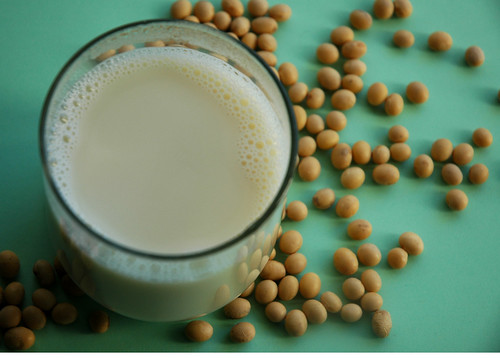Confused about soy?
A number of you have asked about soy products, and how they affect thyroid issues, especially in the wake of the whole Bonsoy debacle. And especially because everyone seems to have an opinion on it these days.
Naturopath Angela Hywood from Tonic (you can read her first contribution here) posted the below as a comment, but I thought I’d drag it out for everyone to read.
PS. These are her thoughts. Me, I’m still working through what my body feels about it. I love soy chai. It warms cockles.
Angela says:
I’m not anti-soy for most people. However, I do suggest soy be eaten in moderation in a wholefood diet and in traditionally fermented forms (which include miso, tempah, soy sauce and tofu).
However here are a few issues about soy from a reliable, credible whole foods research associated in USA, The Weston A Price Foundation.
•High levels of phytic acid in soy reduce assimilation of calcium, magnesium, copper, iron and zinc. Phytic acid in soy is not neutralized by ordinary preparation methods such as soaking, sprouting and long, slow cooking. High phytate diets have caused growth problems in children.
•Trypsin inhibitors in soy interfere with protein digestion and may cause pancreatic disorders. In test animals soy containing trypsin inhibitors caused stunted growth.
•Soy phytoestrogens are potent antithyroid agents that increase risks of hypothyroidism and may cause thyroid cancer. In infants, consumption of soy formula has been linked to autoimmune thyroid disease.
•Vitamin B12 analogs in soy are not absorbed and actually increase the body’s requirement for B12.
•Soy foods increase the body’s requirement for vitamin D. Vitamin D deficiency is closely linked to auto immune disease such as Hashimoto’s.
•Fragile proteins are denatured during high temperature processing to make soy protein isolate and textured vegetable protein.
• Processing of soy protein results in the formation of toxic lysinoalanine and highly carcinogenic nitrosamines.
•Soy foods contain high levels of aluminium which is toxic to the nervous system and the kidneys.
For more myths & truths about soy, read about soy myths here.
Food for thought! What is most important is that you LISTEN to your own body when it comes to any foods. Watch for how it makes you feel.
Angela x


